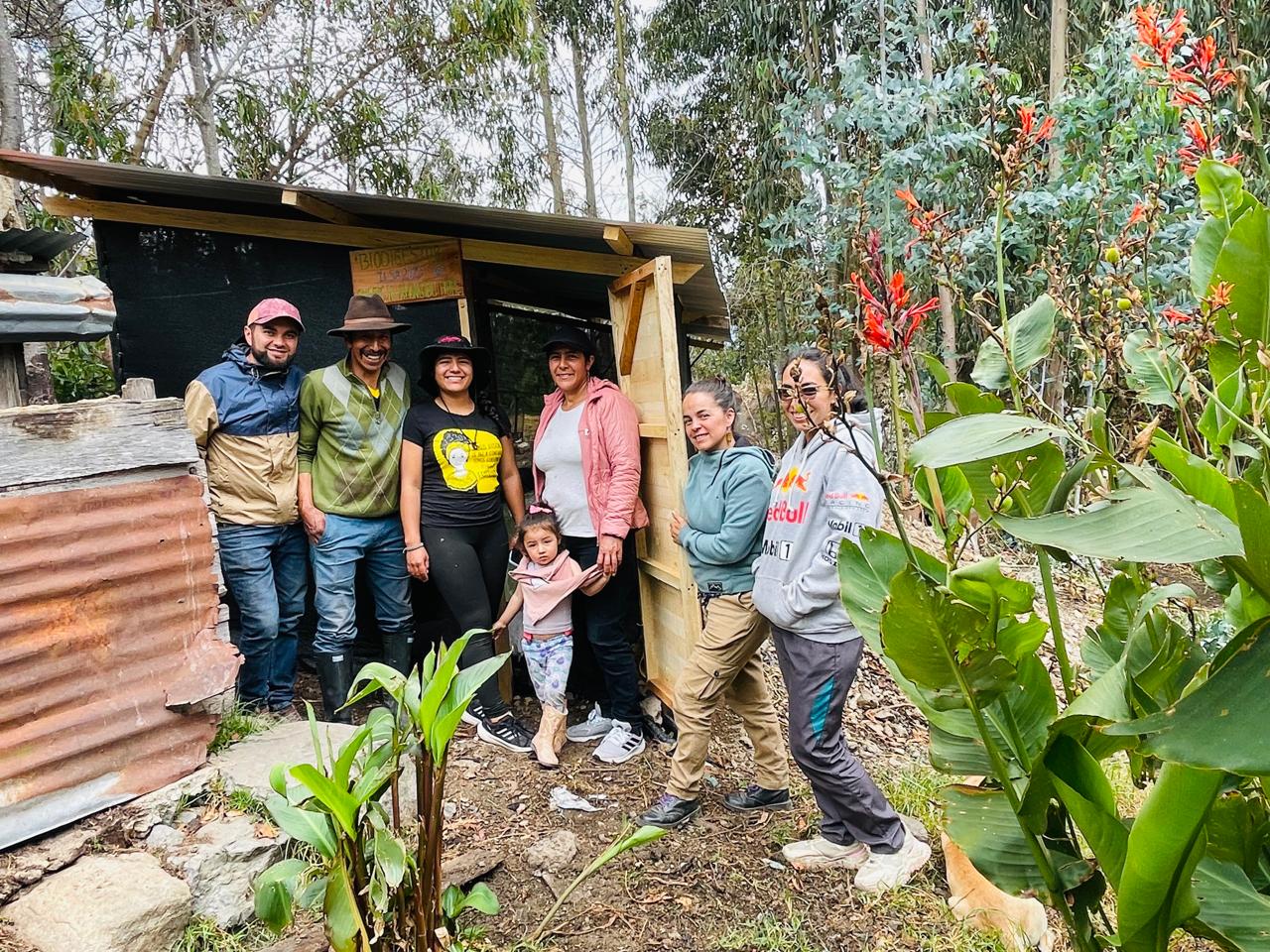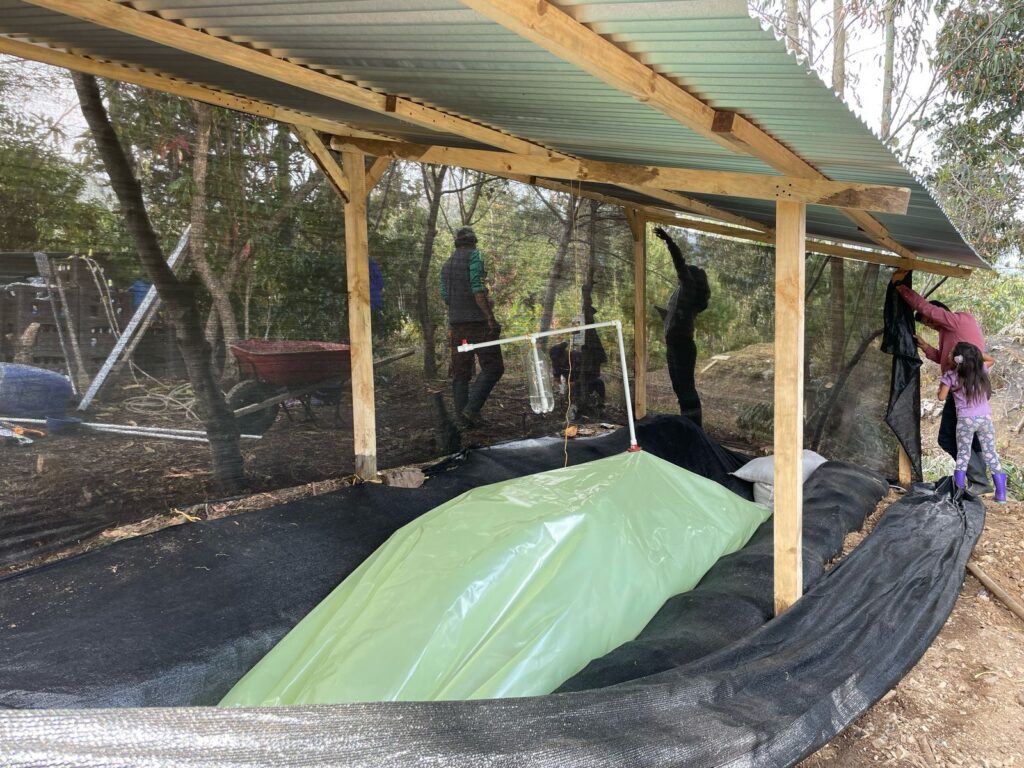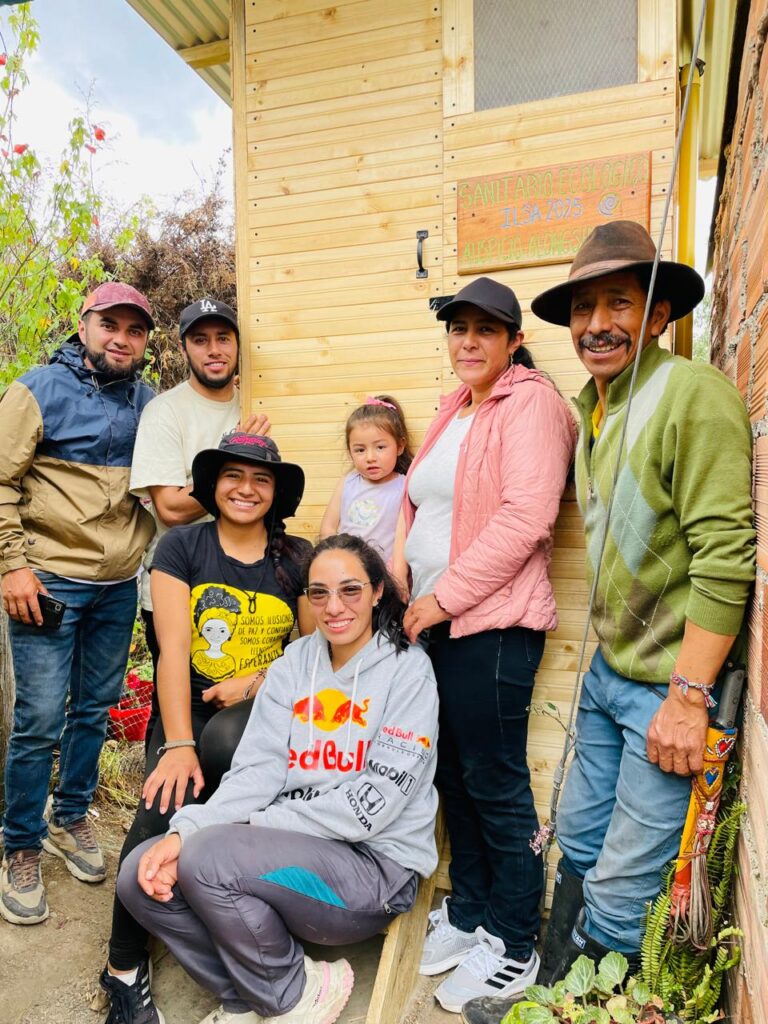How women in Colombia are building a sustainable future for their families
 Through Alongside Hope partner ILSA, women are leading ecological improvements in their communities.
Through Alongside Hope partner ILSA, women are leading ecological improvements in their communities. September 22, 2025
By Jacqueline Tingle
In the mountainous region of Boyacá, Colombia, families have survived on what’s known as small-scale farming for a long time. But water scarcity, waste management challenges, and limited energy resources have made this work difficult, especially for women. In Colombia, women often bear the brunt of agricultural labour and household responsibilities.
That’s where Ana Elsa Zárate comes in. As a respected leader in the town of Chita, Zárate has been working alongside other women in her community to come up with solutions that are both practical and innovative. Through the Women Eco-Project, led by Alongside Hope partner ILSA, Zárate and her family of 13, plus six others, have been equipped not only with tools, but also with training and knowledge that strengthen their resilience to climate change.

Over the past year, women in the project have built and learned to manage:
- Six water harvest systems, ensuring consistent irrigation for home gardens even in the dry seasons.
- Three dry ecological toilets which improve sanitation and health of community members
- Two biofilters, which treat household wastewater from kitchens and showers, turning it into safe irrigation water for crops and pastures.
- Four worm composters and one biofactory, that transform garden and kitchen waste into organic inputs that keep soils fertile and crops productive.
- One biodigester, which uses waste from animals and gardens to produce clean cooking gas, reducing women’s reliance on firewood and harmful smoke exposure.

Each of these technologies may sound small on its own. But together, they create a network of solutions that touch nearly every part of family and community life. Water harvesting and biofilters improve food security by ensuring crops have sufficient water and proper nutrients. Composters and biofactories cut down on waste while producing natural fertilizers. Biodigesters reduce indoor air pollution and free women from long, exhausting hours spent gathering wood.
Most importantly, the process was designed to empower. Between November 2024 and February 2025, women participated in hands-on workshops that taught them how to construct and maintain these systems themselves. This isn’t just about adopting tools, it’s about shifting power. Women are gaining the skills to govern their own resources, make decisions that support their families, and lead with confidence in community spaces.
As Zárate describes it, these technologies are more than equipment; they are part of a larger vision of justice, autonomy and sustainability. By saving time and labour, they allow women to invest more energy in community leadership, education and income-generating activities. By managing water, waste and energy more effectively, they are building resilience in the face of environmental pressures. For Zárate and the women of Chita, every dry toilet, biofilter and worm composter is a step towards a future where women are not only farmers and caregivers, but also decision-makers who drive environmental and social change in their communities.
For media requests, please email Communications and Marketing Coordinator Janice Biehn at jbiehn@alongsidehope.org.
